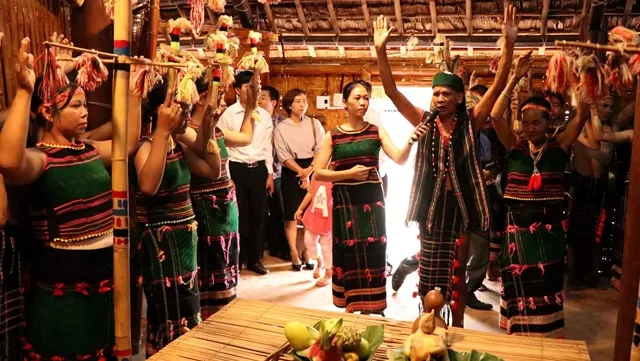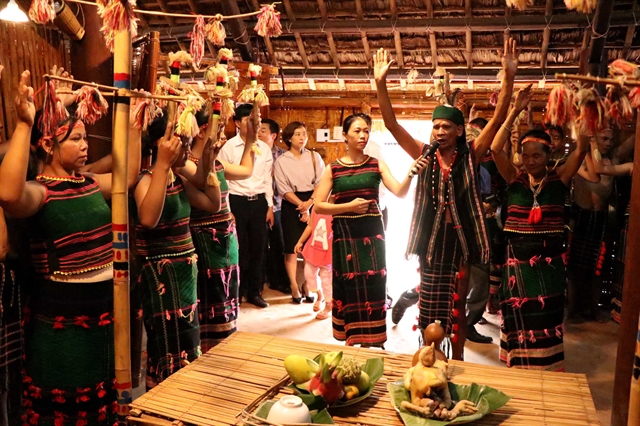Civil engagement highlighted in the new ethnic minority development policy
by ,http://vietnamnews.vn/society/523434/civil-engagement-highlighted-in-the-new-ethnic-minority-develop01 August 2019 Last updated at 04:21 AM


HÀ NỘI — Việt Nam’s ethnic minority groups are to be empowered to develop policies involving their communities.
Accelerating civil engagement is one of the main targets in the master plan on investment for socio-economic development in ethnic minority, mountainous areas and regions with difficult socio-economic conditions in the period between 2021 and 2025.
In Hà Nội on Wednesday, for the first time, representatives of ethnic minority groups joined a consultation workshop to voice their opinions and recommendations on the important document.
“People’s participation in formulating the policy will help make it more impactful and applicable in addressing their demands,” said Bùi Văn Lịch, head of Work Group no. 56 under the Committee for Ethnic Minority Affairs – the agency in charge of this master plan.
The draft master plan sets ambitious goals, covering socio-economic and social security aspects.
By 2025, the growth rates of provinces in ethnic minority area are expected to reach 8 to 10 per cent per year, higher than the national average.
Meanwhile, the average income of a minority ethnic person is aimed to rise 2.5 times, helping reduce the poverty rate by 4 to 5 per cent a year.
Each commune will have a kindergarten, primary school and secondary school to serve the basic education of local children.
Up to 75 per cent and 99 per cent of ethnic minority households will have access to clean water and the electrical grid, respectively.
“To obtain these goals, besides the determination of authorities, it is essential to have communities join hands to discuss efficient implementations and budget distributing plans since they are the ones who understand their own problems best,” said Lịch.
At present, Việt Nam has 118 policies specialised in addressing ethnic minority affairs, affecting some 14 million people of more than 53 groups.
However, according to Lịch these policies have been scattered and lacked breakthroughs to create significant changes.
Therefore, the committee will file a proposal to the Government and National Assembly on composing a national target programme on ethnic minority development with a vision to improve socio-economic conditions and infrastructure in ethnic minority areas, unleash their potential in securing livelihoods and conserving indigenous culture, while at the same time utilising the State budget.
Under the framework of the consolation, representatives of different ethnic minority groups touched upon several issues of concern.
Kray Sức from Đắk Rông District, the Central Province of Quảng Trị, said most current assistance policies covered only poverty reduction and socio-economic improvement yet paid little attention to culture conservation and development.
“I hope in the near future there will be more experts working in the field to maintain and spread values of languages, dances, music and other art forms of ethnic minorities,” he said.
For Lý Sao Mai from the Northern Province of Hoà Bình, forest protection is a lifeline.
“Although the Government has issued some policies on forest protection, mechanisms to encourage the participation of local resident have been not effective. Therefore, I want it to be better highlighted in upcoming documents,” she said.
The draft master plan will be filed to the Government for consideration on August 5. – VNS





